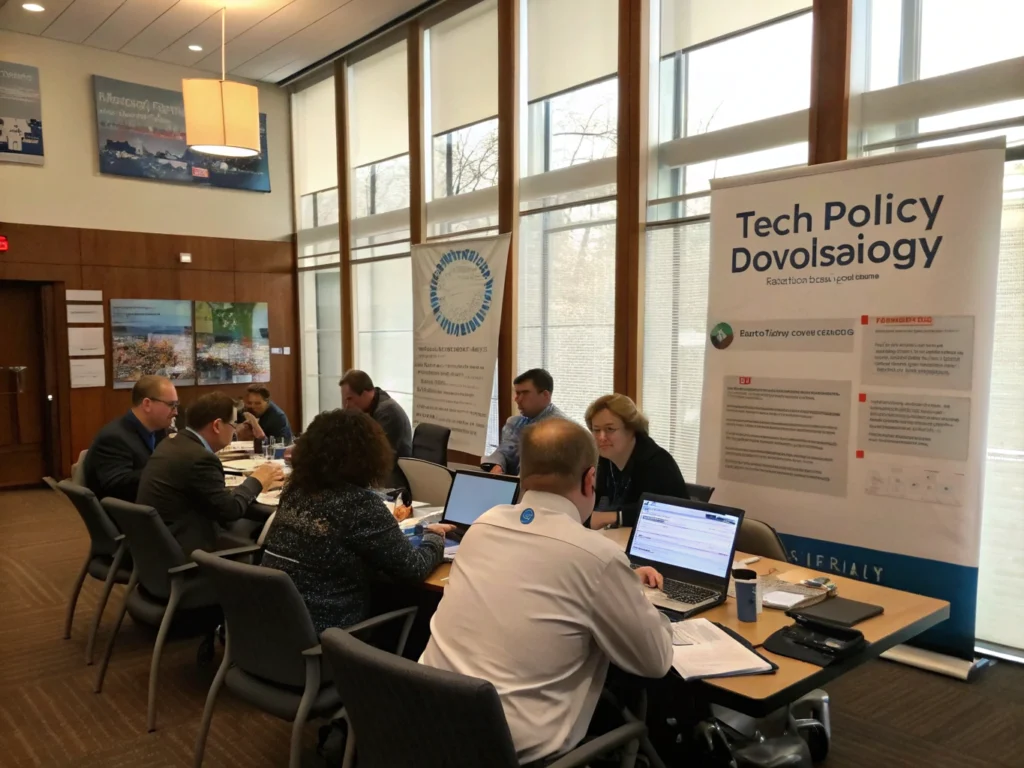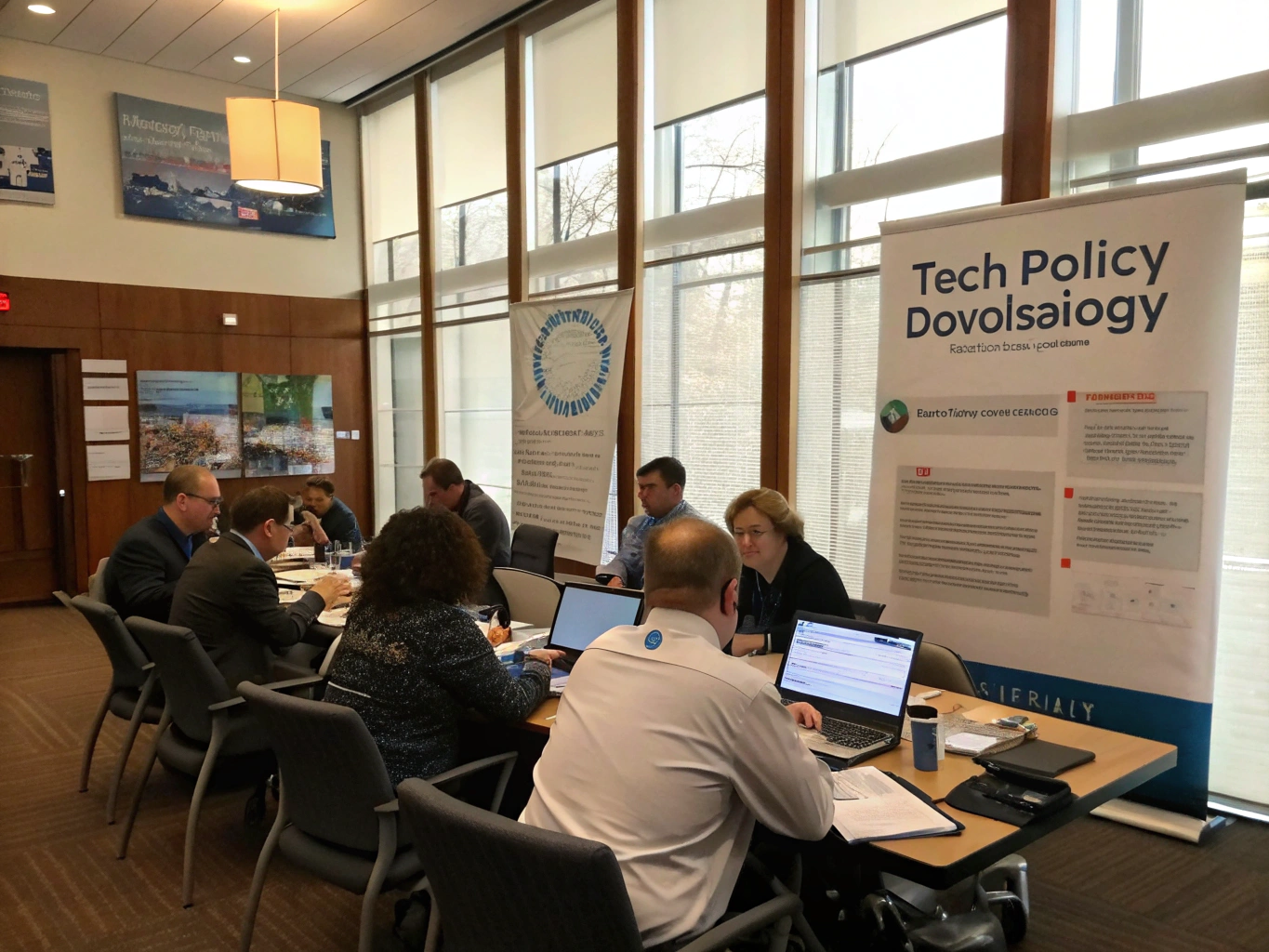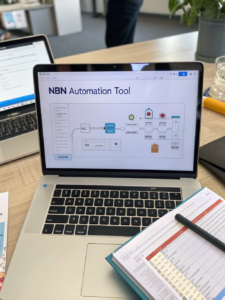How Government Policy is Shaping Tech Innovation

Navigating the Evolving Landscape: Understanding Tech Policy in 2025
Shaping Tech Innovation, Did you know that the global technology industry is facing unprecedented scrutiny from governments worldwide? Faced with rapid innovation in areas like artificial intelligence, data privacy, and digital currencies, the need for robust Tech Policy is more critical than ever. But amidst the complex web of proposed Regulations, understanding the implications can feel overwhelming. This post dives deep into the current state of Tech Policy, exploring key trends, data-backed insights, and practical strategies for navigating this dynamic environment. Explore further at Tech Policy.
Key Concepts & Trends

The current Tech Policy landscape is a melting pot of emerging concepts. A significant trend is the rise of algorithmic accountability, pushing for transparency in how AI systems make decisions. This is gaining traction globally, with debates around bias, fairness, and the potential for discrimination.
Another hot topic is data sovereignty, emphasizing control over personal data located within a country’s borders. The EU’s GDPR serves as a prime example of this, and similar Regulations are being implemented in other regions.
Decentralized technologies like blockchain are also impacting Tech Policy. Governments are grappling with how to regulate cryptocurrencies, NFTs, and decentralized finance (DeFi) while fostering innovation. Digital identity is gaining traction as a key area, with governments exploring secure and privacy-preserving methods for verifying identities online.
Furthermore, the metaverse presents a new frontier, raising questions about jurisdiction, content moderation, and user safety. These concepts, while complex, are rapidly shaping the future of technology and the rules governing it. The analogy here is similar to the early days of the internet – a period of experimentation and regulatory catch-up.
Data & Market Insights
The market for Tech Policy solutions is booming. According to a recent report by Gartner, global spending on cybersecurity and risk management is projected to reach $326 billion in 2024, driven in part by evolving Regulations and increasing cyber threats. A 2023 survey by PwC found that 70% of businesses are concerned about complying with new data privacy Regulations.
The rise of AI is also significantly influencing Tech Policy. Statista projects the global AI market to reach $1.8 trillion by 2030. This growth necessitates policies addressing AI ethics, safety, and potential job displacement.
Consider the impact of the EU’s Digital Services Act (DSA), which aims to create a safer digital space by holding online platforms accountable for illegal and harmful content. This isn’t just a European issue; similar legislative efforts are under way in the US and other countries.
(Infographic Suggestion: A bar graph showing projected global spending on cybersecurity and risk management from 2020-2030, highlighting the accelerating growth.)
Smarter Strategies & Alternatives
Navigating the complexities of Tech Policy requires more than just compliance; it demands proactive strategies. Businesses should prioritize building a strong data governance framework, ensuring data privacy is embedded in their operations from the outset.
Consider implementing privacy-enhancing technologies (PETs) like differential privacy or homomorphic encryption to minimize data exposure. For businesses operating in multiple jurisdictions, exploring decentralized data storage solutions can help address data sovereignty concerns.
Alternatives to traditional compliance approaches include leveraging blockchain for secure and transparent data management. AI-powered compliance tools can automate tasks like monitoring regulatory changes and ensuring adherence to Regulations.
It’s crucial to adopt a risk-aware approach, balancing innovation with regulatory requirements. Ignoring Tech Policy isn’t a viable option; it can lead to significant fines, reputational damage, and legal challenges.
Use Cases & Applications
The impact of Tech Policy is evident across various sectors. In healthcare, the use of AI for diagnostics is being carefully evaluated under strict data privacy Regulations like HIPAA. Financial institutions are enhancing cybersecurity measures to comply with evolving data protection standards.
Startups are leveraging blockchain technology to create transparent and auditable supply chains, addressing concerns about product authenticity and ethical sourcing. The metaverse is prompting discussions about digital ownership and virtual asset Regulations.
For example, a fashion startup using NFTs to authenticate its products implemented a robust data privacy policy and partnered with a blockchain security firm to ensure compliance with emerging digital asset Regulations.
Thought leaders like Tim Cook and Satya Nadella are increasingly vocal on the importance of responsible technology development and the need for collaborative Tech Policy.
Common Mistakes to Avoid
One of the most common mistakes is treating Tech Policy as an afterthought. Failing to integrate compliance into product development cycles can lead to costly redesigns and delays.
Another pitfall is underestimating the complexity of international Regulations. What’s compliant in one country may not be in another. A lack of internal expertise also poses a risk.
Many organizations struggle with data breach preparedness. A robust incident response plan is crucial in the event of a security incident. Data encryption is another foundational element of protecting sensitive information.
Maintenance, Security & Long-Term Planning
Maintaining compliance isn’t a one-time task; it’s an ongoing process. Regular security audits, penetration testing, and vulnerability assessments are essential.
Investing in employee training on data privacy and security Regulations is crucial. Scalability is also a key consideration; as a business grows, its Tech Policy framework must adapt to meet evolving needs.
Staying informed about upcoming regulatory changes is critical. Subscribing to industry newsletters and participating in industry events can help businesses stay ahead of the curve.
Summary & Key Takeaways
The world of Tech Policy is in constant flux. Staying informed about emerging trends, understanding the implications of new Regulations, and proactively implementing data privacy and security measures are essential for success. The rise of AI, blockchain, and the metaverse are shaping the future of Tech Policy, creating both opportunities and challenges.
Call to Action: What are your biggest concerns regarding the evolving Tech Policy landscape? Share your thoughts and experiences in the comments below! Want to learn more about specific Regulations impacting your industry? Explore our resources [Link to a relevant resource page].
FAQs
Is it too late to invest in crypto?
While the crypto market has experienced volatility, many experts believe there is still long-term potential. However, it’s crucial to conduct thorough research and understand the associated risks before investing. Constantly evolving Regulations add further complexity.
How can small businesses use AI?
Small businesses can leverage AI for tasks like customer service (chatbots), marketing (personalized recommendations), and data analysis. There are many affordable AI tools available.
What tech stacks scale best?
Cloud-native tech stacks built on microservices architecture tend to scale best. Technologies like Kubernetes and serverless computing are gaining popularity for their scalability and flexibility.
Share this content:














Post Comment